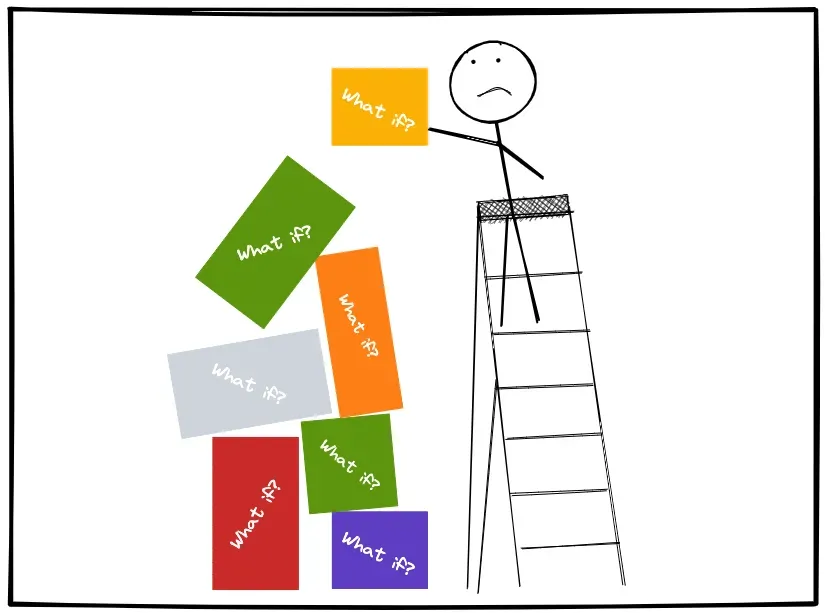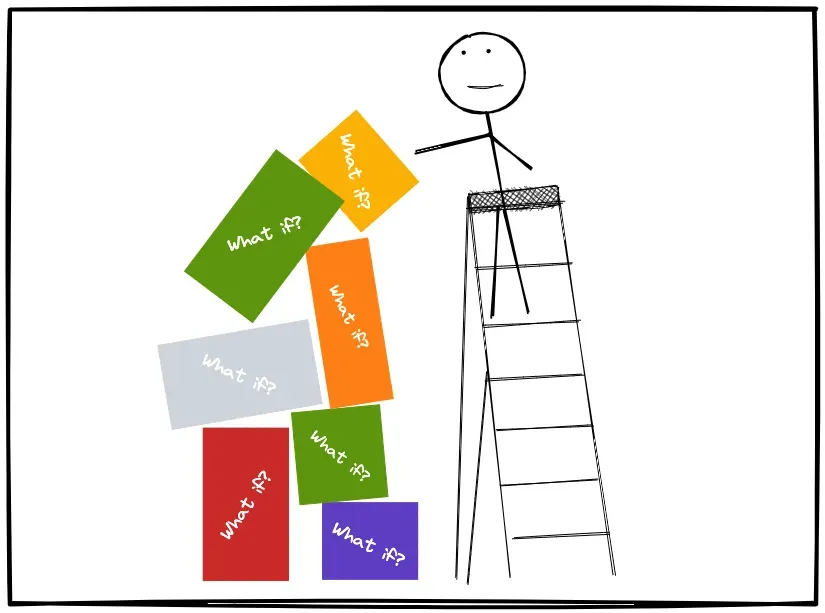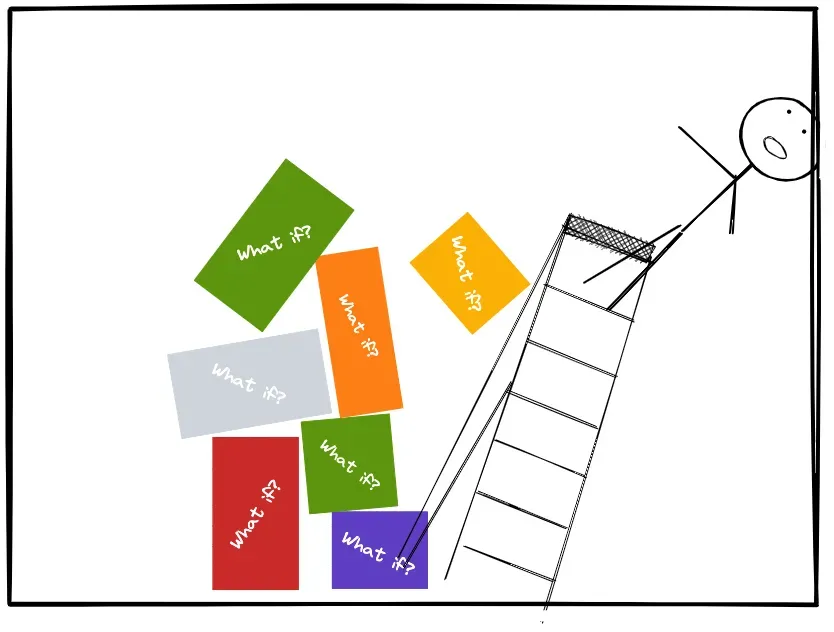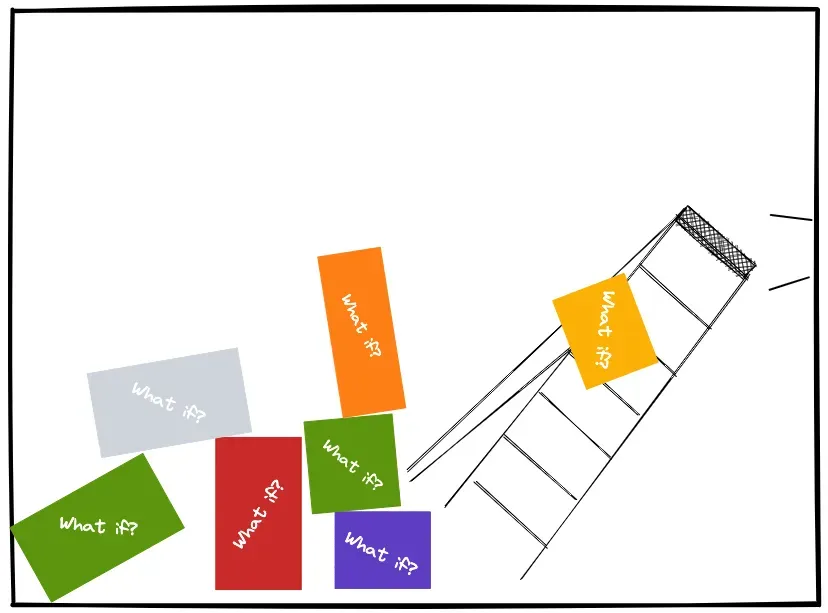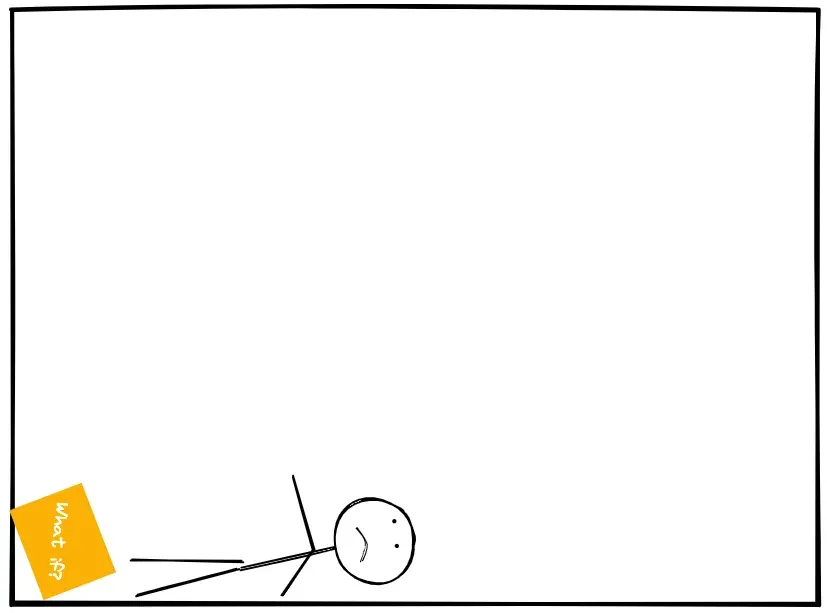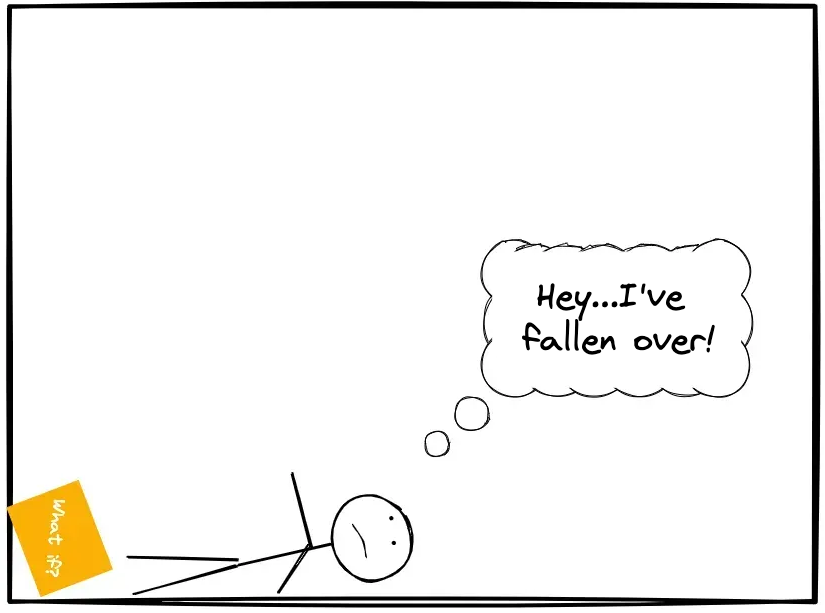Grieving for a dead startup
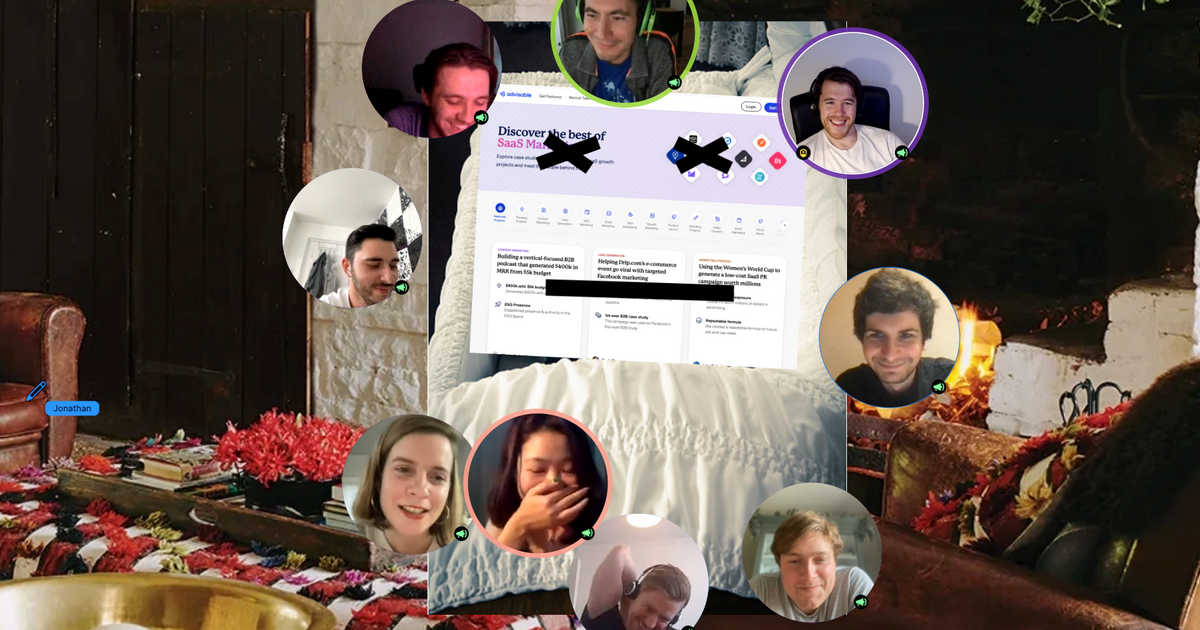
The first part, which you can see here, was an explanation of where we want wrong and why - from start to finish. While it’s not necessary to read it to understand this, it might be good context.
The 3rd part will be about what I'm doing to try to figure out the future, rebuild confidence, and discover a new purpose in the aftermath of this failure.
Over the past few weeks, a lot of founders reached out about the article I wrote about shutting down Advisable. I got the impression from their messages that the piece encouraged them to think about their own past or impending failure in a brutally honest manner - to take a rational perspective on things, even if that's painful to do.
While it was great to have helped them, one thing I realised is that rational processing is just one part of coming to terms with something you've been working on failing - it's also an intensely emotional process.
During this time, I spoke to some of these people who reached out - mostly founders who'd been through failure. In speaking to them, I realised that some didn't seem to have fully emotionally processed what had happened. It felt like, years later, it was still a painful topic for them to talk about. This is understandable but definitely not desirable.
So I'm going to share some thoughts on the emotional processing side of failure as, despite many mistakes and missteps, I think I figured out some good ways to approach it.
Recognising Grief
Why is a startup failing even worthy of grief?
The week after we decided to shut Advisable down, I found myself trying to invent things to occupy my days and distract myself.
When I wasn't working on stuff related to the shutdown, I was feeling directionless and deflated.
In order to combat this, I simply refused to stop working - even though I had nothing to work on. I made incremental progress on 20 little projects, did a Python course, and wrote articles that no one will ever see.
Nothing felt that important, and I ended up trying to do so many things that I also achieved nothing.
In trying to understand this feeling of lacking direction, one thing I realised was how much I loved so many elements of what I was doing with my life while running Advisable:
- I loved the sense of purpose - the idea behind our product was to help marketing freelancers be discovered by clients based on their most impressive past projects. I believe that, had we succeeded, it would’ve been hugely positive for so many people. People from companies could’ve discovered lots of different projects they could undertake and, in doing so, talent they’d love to work with. Given they were discovering them in an organic manner, I believe that the relationships formed would be true collaborations - unlike the transactional relationships that are mostly formed via freelance marketplaces today. As a result, they’d likely do meaningful work together - the kind that’s only possible on a foundation of trust and respect. Unfortunately, we didn’t manage to make this happen in a meaningful way - but it was still an inspiring idea to work towards.
- I loved the problem-solving - trying to figure out clever and new ways to tackle all the different problems we were encountering, and then trying to do them really, really well - even if they were in weird, esoteric areas. I delighted in trying to excel in whatever I was working on and to figure out unconventional but effective solutions.
- I loved the feeling that I was getting better - that, in pursuing this purpose, and in figuring out how to solve all of these problems, I was in some ways becoming a better person and getting over some of the issues that had held me back in the past - in every area from productivity, to management, to communication, to empathy, and to honesty.
- I loved the people on the team - as I tried to express in my references for them, I genuinely loved working with every one of the team. Not only are they extremely competent and hardworking, but they're also fun, good people in general. I came out of (almost!) every meeting with them with more energy than I went it and it felt as though they pushed me to be better in different ways - like Thomas, who constantly made me want to be more organised and thoughtful in how I communicated and planned, or Miha, who pushed me to be not over-complicate things unnecessarily, or John, who thoughtfully challenged every decision we made to push us towards being better.
- I loved the camaraderie - the feeling of working with people who I really like and respect, on a shared mission that can lead to a great place that will be good for the world.
I was thinking about this the week after and trying to figure out how to deal with it.
This happened to be the same week that Queen Elizabeth II died and, as her funeral was happening, I came across this quote from her on Twitter:

I think she probably stole it from some self-help book because it's not a new or novel idea but it is definitely true in a very deep sense.
And, in applying it to my situation, I realised that, given I was losing so many things that I loved, it made sense that I was feeling grief - even though I hadn't called it that before.
The loss of all of the above in my life was profoundly noticeable. And the lack of it is something that's worthy of grief - something to really recognise and to feel and understand the loss of.
I know that all this stuff enriched my life to an unbelievable degree and I felt a huge gap in my life where it once was. When I understand it, I know that it's something that really made me feel more alive - that made every day better and even more worth living.
That doesn't make deciding to shut it down the wrong decision, but it helps explain why it was still painful and in some way still felt wrong.
So, in recognising that what I was feeling was grief, I decided to try to make an effort to grieve this loss as well as possible.
While I made a bunch of mistakes in doing this, below is a mix of what I did - much of it by accident! - and what I'd do if I had to do it again, which I hope will never happen.
Processing Grief
What I'd recommend to past me to help me emotionally process the emotions around my failure in a healthy way.
The below is written for past me - humans are all very different and what makes sense for you to emotionally process things like this might be different - so, rather than seeing this as a prescription, I'd encourage you to take everything with a grain of salt and do whatever makes sense for you:
1) As soon as you're ready, make a deep effort to rationally process what happened throughout your journey - from start to end
I don't really know what the 'correct' sequencing for this should be - whether to process something first rationally and then emotionally but, for me, it was important to think things through rationally before I attempted to feel them emotionally.
To do this, I spent around 3 days writing this article where I went through our whole story from start to beginning and tried to make sense of it - what were my motivations? What mistakes did I make? Why did I make them?
In doing this, I made an effort to be completely honest with myself about what happened with Advisable.
While tackling something rationally first might not be best for everyone, for me, it really helped me make peace with what happened - to not have my emotional processing clouded by thoughts I'd avoided or hard truths I hadn't acknowledged.
2) Understand and acknowledge the things you're losing that you loved
After this, I spent around a day thinking through all of the stuff that I loved about Advisable and tried to write this down.
I did this because I wanted to share it with the team, in the hopes that it would help them recognise what they might be feeling, but I think that this was something that was useful to just do for its own sake.
I basically thought about all the stuff that I felt sad about, wrote it down in plain English, and tried to simplify and organise it - the result was pretty similar to the above section about what I loved.
As I was writing it, I inadvertently spent time thinking about each element - about why I loved it, why I'd miss it, why I should treasure what I had, and whether or not I should seek it out again.
This whole process basically forced me to make a lot of things that felt intangible in my mind a lot more explicit - in naming them and explaining them, I saw them as distinct elements, not just parts of an unfiltered cloud of emotion.
3) Give yourself a time-out and space to really feel what you're feeling
This is one thing I definitely did wrong. As mentioned above, in the weeks after, I literally spent the time non-stop working - on the shut-down process, on learning, and on random different projects.
The ultimate goal is to move on, but I didn't give myself any chance to really digest things - I acted it though my working life was going on as normal, which was stupid.
Probably because of this, I ended up feeling directionless, distracted, and exhausted - so I realised that I needed to take a week of rest.
During my time off, I tried to feel no pressure to do anything. Instead of jamming my days full, this time allowed me to develop clarity on how to prioritise going forward.
If I were doing it again, I'd take this week as soon as I could. Maybe some people will need more - maybe I will too! - but I generally feel like wallowing doesn't really help you.
My brain needs time to digest, but action is ultimately what will make me feel better.
4) Take time to do a proper grieving process with the team
As I said, it's kind of difficult to really help someone who's going through a grieving process as what they're grieving and why they're grieving it is so personal.
Talking to people individually on the team felt important and helpful but funeral traditions are also there for a reason - they're 'designed' to help people mourn someone that they all loved together as a group. And luckily, my home country has probably one of the best of these traditions in the world: the Irish Wake.
For those who don't know, when someone dies in Ireland, everyone who knew them comes together the night before their funeral for what's called a "wake".
While someone dying isn’t a joyous moment, wakes aren't depressing, sad occasions - rather, they're celebrations of the life that the deceased lived. People tell stories, share jokes, and get a little bit drunk together while remembering the person who’s no longer with them.
If you haven't been to one, this might be a little bit hard to imagine but this scene from The Wire (an American show 😱) did the best job I've seen of showing the spirit of this on-screen:
Wakes help people face the reality of what’s happened (it’s hard to avoid as the body is kept in the middle of the room during it) and come to terms with it alongside other people who loved them.
So we decided to do a wake for Advisable!
We basically did the same as the above: gathered together, got a little drunk, and told stories - all around the 'corpse' of our dead startup:
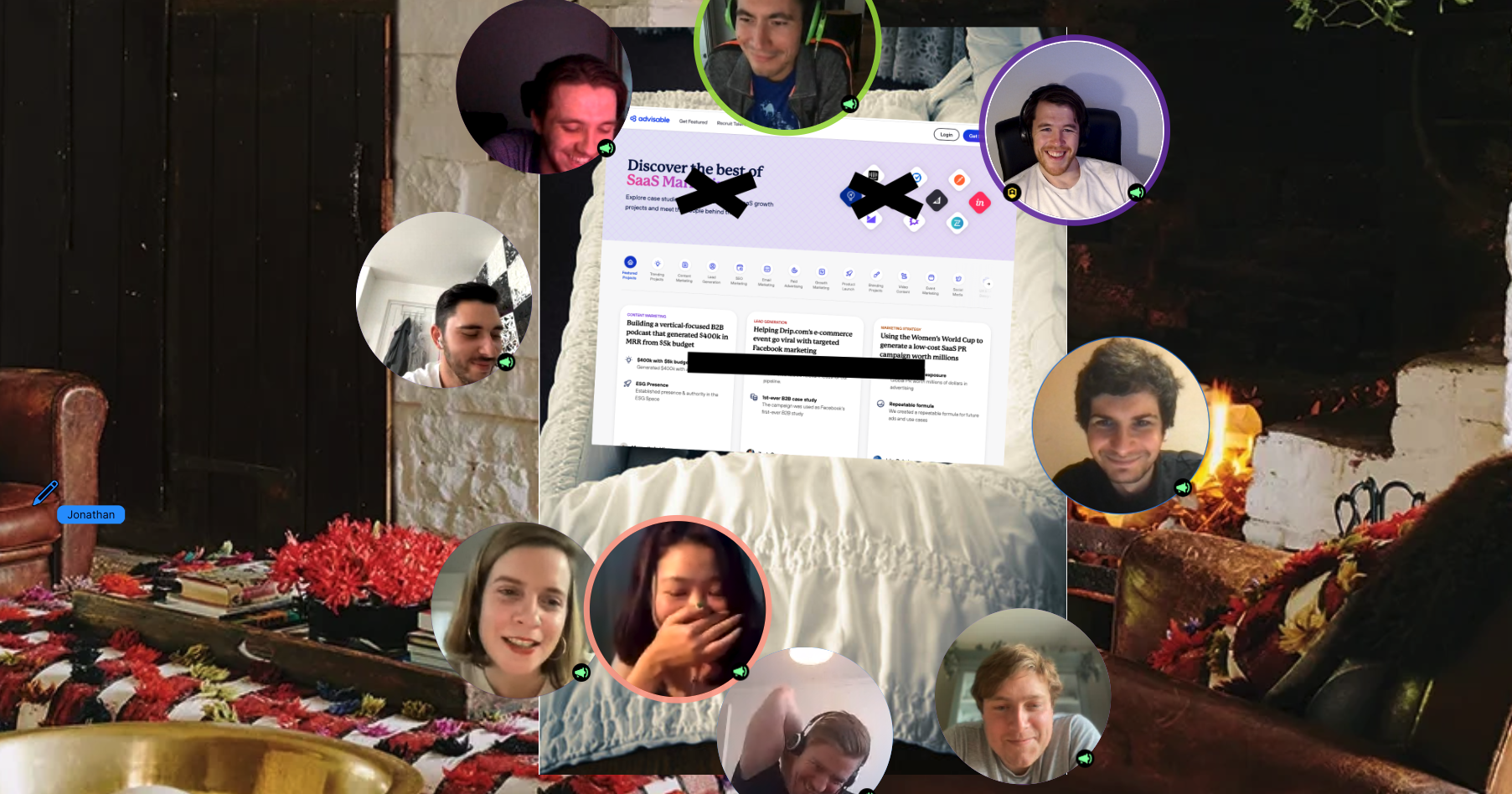
While I can only speak for myself, I found this to be extremely cathartic.
I've cried a handful of times in my adult life and one or two of these times were during this wake. In the days after, I felt a cloud that had been over me begin to lift. Maybe this is a coincidence but I think that it isn't.
5) Share everything publicly
When you're shutting down something, there's a level of anxiety around who knows what and when they know it. You worry that people will find out about things in the wrong way, or at the wrong time.
You also worry that people will be gossiping and sharing it and will hear about it indirectly, and maybe that some of this gossip will be untrue.
Whenever you're speaking to someone, the shutdown of your company can also feel like a bit of an elephant in the room. Do we discuss it? Do we not? What did they hear?
These are all kinds of ridiculous worries as, realistically, no one really cares - it was all just in my head.
But even though I knew that it was mostly in my head, I still worried. So I decided to just publish a complete explanation of everything as soon as possible - if everything was in the public, I would guess that anyone who cared to know would just read that and. if I was honest and transparent, it would satisfy any questions and silence my imagined gossip.
It felt a little bit weird to publish all of this stuff, but I also couldn't think of any reason why not to do it. So I did! And it eased this whole anxiety. And made me feel more at ease. And seemed to help others!
6) Avoid being hampered by guilt by doing as much as you can to help the team find great opportunities
When you hire someone, you take inherent responsibility for them. Even though everyone's an adult, they chose to trust in what you were doing and the direction you were taking them, and, while they knew the risk, they obviously weren't expecting the worst to happen when they gave you that trust.
So, even though I rationally believe that everyone is ultimately responsible for themselves, I emotionally felt responsible for my team and it felt like, in shutting down Advisable, I was letting go of this responsibility. Given this, I basically knew that I would feel guilty if I felt that the team was worse off for having worked with me.
Thankfully, they're all such great, talented people that this isn't a very realistic concern but I decided to try to do as much as I could to help them in any case.
To do this, to start, I spent a few days creating a document where I tried to express the appreciation I had for them as people and team members.
I took the time to try to express what I loved about each of them. Some of these took hours to complete - not because I couldn't think of things, but so I could think of what to talk about, or how to express things in an interesting way.
When this was ready, my brother John then helped me in promoting this document via a number of channels - social, outbound email to founders, Slack communities, etc.
Thankfully, this was pretty successful and generated a few hundred opportunities, including already a number of accepted ones with amazing companies.
Selfishly, doing this also me a good sense of closure in some ways!
7) Take a small dose of LSD and think about your purpose
I wasn't sure whether or not to include this as it feels a bit taboo - but it also felt dishonest not to include it as it was very helpful for me.
Thankfully, the attitude towards psychedelics is becoming pretty open - with many positive academic studies every year, Netflix shows, and a bunch of mainstream coverage. Substitutes for it - like 1P LSD - also happen to be legal where I live!
So why not bring out of the darkness? It helped me, it might help might others, and it's probably on a trend toward being considered 'perfectly normal’:
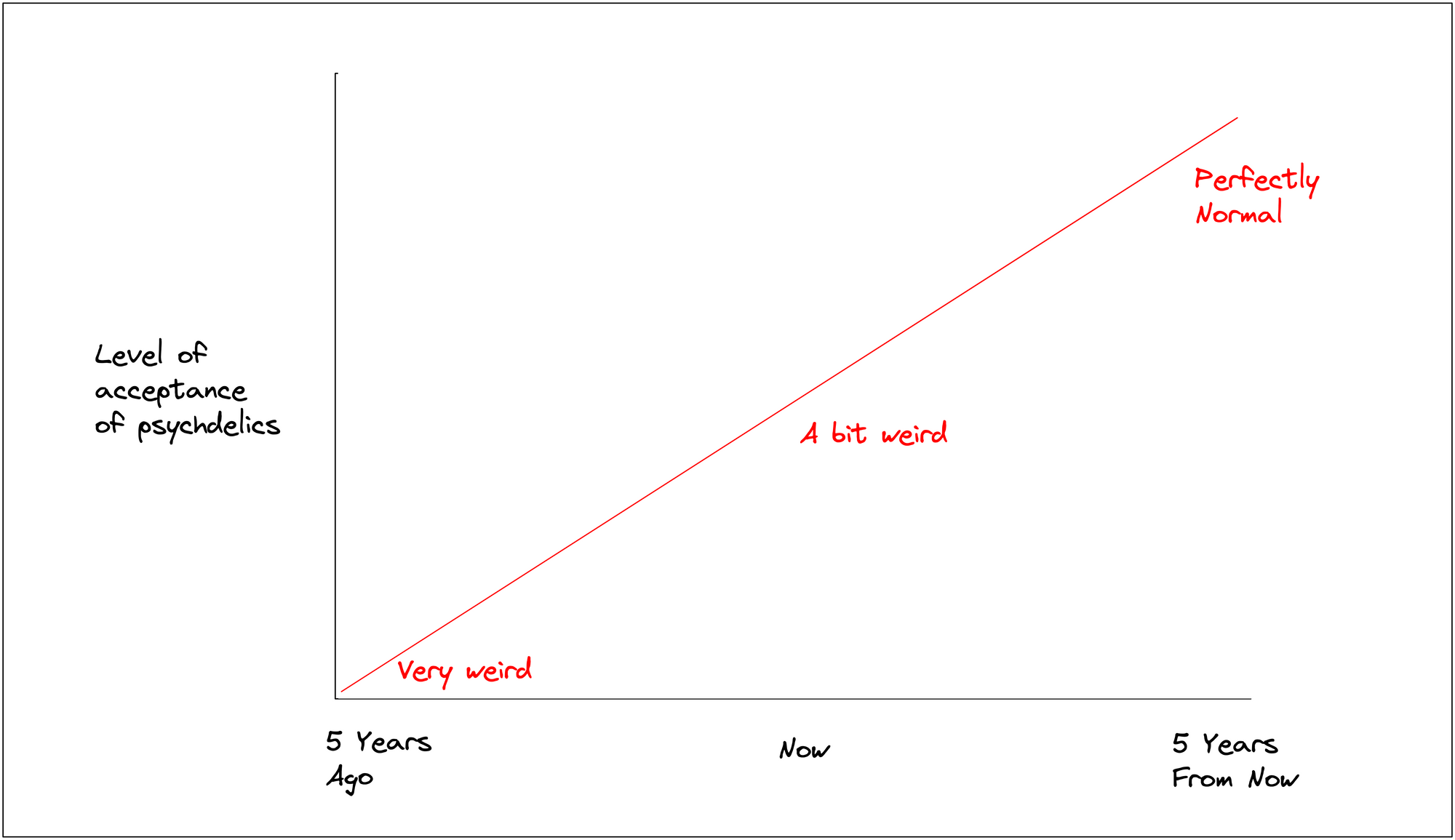
So, with that in mind, last weekend, my wife and I both took a small dose of LSD and spent a day hanging out at the park talking about stuff.
In a medical setting, LSD is used at a medium dose to help untangle damaging issues like PTSD and depression - but it's also great to help you explore and understand less pressing problems.
I took a very small dose - around half what people usually take in a medical setting. Rather than seeing ripples in reality or risking your sanity, at this dosage, your brain just works in a slightly weird and unusual way. Things have a little bit more gravity. Ideas that usually come and go confront you with more impact. You see the truth, beauty, and fear in things more profoundly than you normally do. You identify thoughts you've been trying not to think about.
All in all, what this helped me was to think about what my new sense of purpose should be during this interim period.
There were so many things I could do but, with nothing I have to do, what direction should I want to explicitly push in? Should I continue doing 50 projects at a time? What was I even doing them for? What should my guiding purpose actually be?
During this trip, the direction I needed to take started to become very clear. While the LSD didn't decide my direction for me, it helped me see the options with a clear heart and helped me recognise that fear and pessimism were driving me towards some paths that I was considering.
Instead of unknowingly giving in to this fear, it helped me choose the path that hope and optimism were pulling me towards - even if that makes me anxious in some ways.
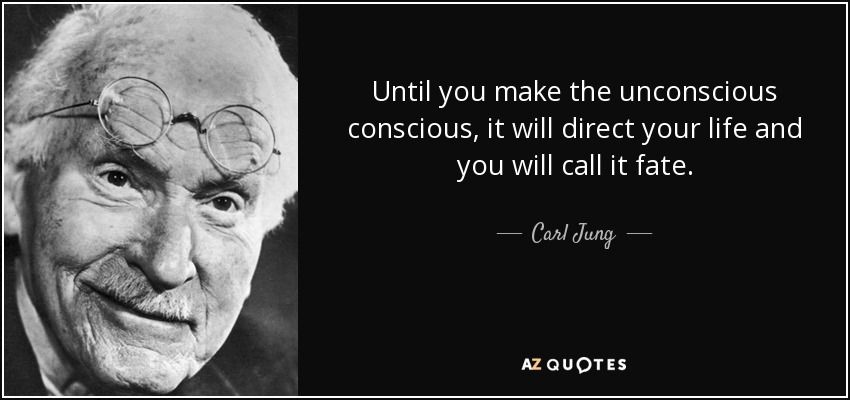
8) Don't be afraid to get over it
It sounds a bit weird to say it in the context of normal human grieving, but isn't 'getting over it' the goal of a good grieving process? To not let the pain you experienced stop you from living a good life long-term? To not avoid doing things due to a fear of risking more disappointment? To go away from an experience ready to live a life that will involve you risking that again?
Does that mean I won't still love the people I worked with? Or the vision that we were working towards? Or what we could've been?
Of course not, but getting over it will help me make room for me to find other things to love.
While I wouldn't say that I'm completely done with it yet, as I still feel the absence of things that I loved in my life and worry about some things not returning, but my goal is ultimately exactly that: to completely and thoroughly get over it.
That's it! If you have any questions, if there's anything you think I should add, or if this was helpful for you, I'd love to hear from you.
In closing, here's an illustrated version of this article:
